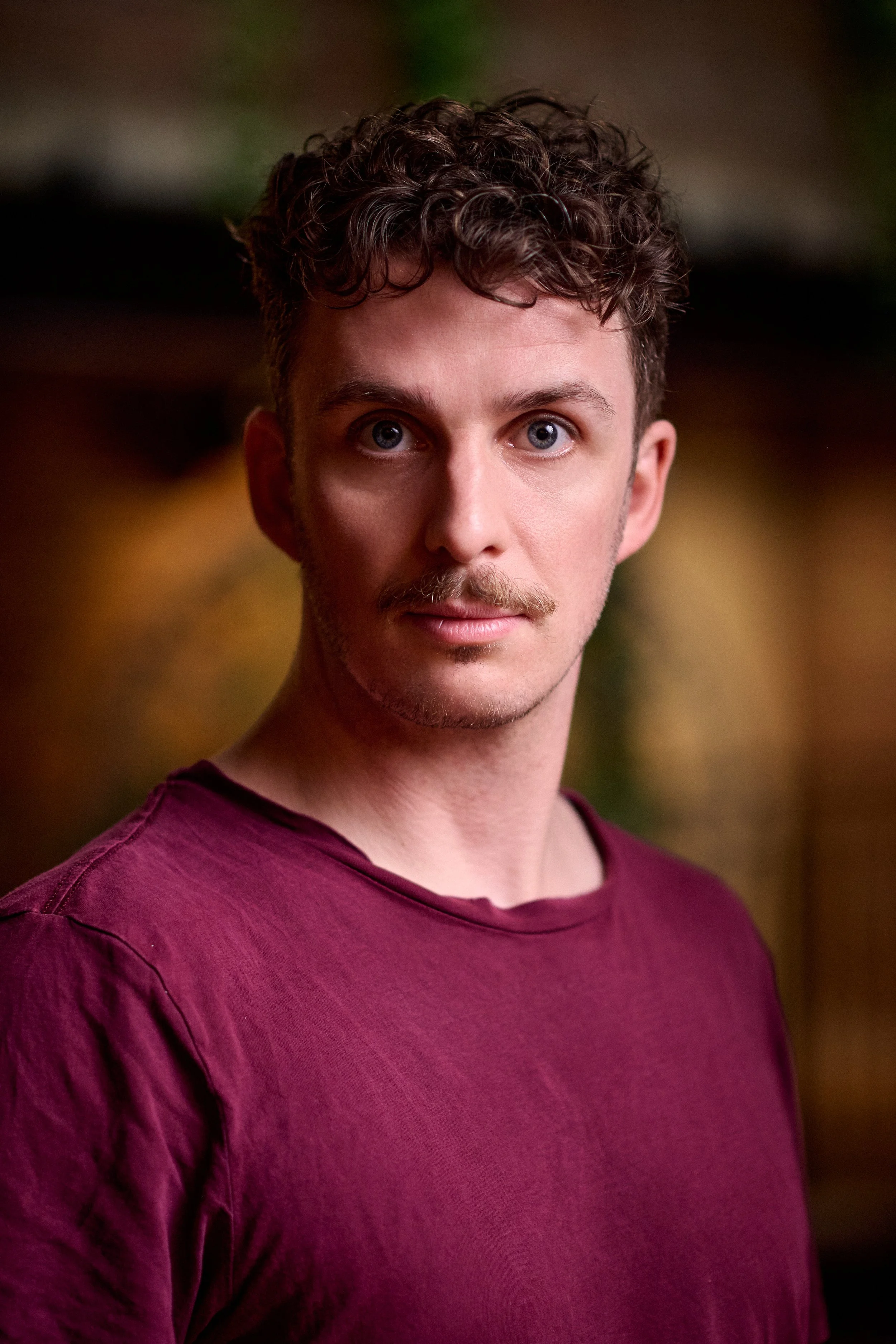How to Find the Best Agent For You – a Guide for Actors
Headshots from a recent stage combat course with Equity registered combat school Sword and Scoundrel
Just finished drama school? Amazing – congratulations! Perhaps you’ve been treading boards for a while and decided to start acting professionally? Wonderful – get stuck in, and good luck! Now: what next?
One of the things high up on an actor’s to-do list is to find an agent that will work for them. But why? What does an agent do and how will they help you?
1. Opening the Right Doors
Agents have direct access to casting directors, producers, and networks that actors simply cannot reach on their own. They know which roles are being cast, often before they’re publicly advertised, and can get their clients into the rooms that matter. An actor with an agent isn’t just another hopeful — they’re presented as a serious professional.
2. Negotiating Contracts with Precision
A skilled agent knows the industry’s rates, union rules, and contract structures inside out. From pay to billing, from residuals to working conditions, they ensure their clients are protected and fairly compensated. What might feel awkward or intimidating for an actor to negotiate, an agent handles with authority and clarity.
3. Shaping Career Strategy
An agent doesn’t just book jobs; they help build careers. They guide actors in choosing the right projects — whether that means prioritising stage over screen at certain points, avoiding typecasting, or leveraging a breakout role into longer-term opportunities. They see the big picture and help map out a path to sustained success.
4. Advocating Relentlessly
An agent is an actor’s loudest champion. They chase opportunities, follow up with casting directors, and fight for their client’s place in the conversation. Where an actor might feel hesitant about pushing too hard, an agent thrives — ensuring their client isn’t overlooked in a competitive market.
5. Providing Guidance and Support
Beyond the business, agents understand the pressures actors face — the rejections, the uncertainties, the emotional highs and lows. A good agent is also a mentor, offering candid feedback, encouragement, and practical advice to help their clients stay resilient and focused.
What, however, do you need to get ready before you approach your first agent?
Peter Barnett
Perfect Preparation Prevents [Terrible] Performance
Before you get in touch with an agent, there are three things you need to prepare:
1. Your CV
As for all jobs, tailor your CV to what you’re applying for: the Saturday job you had when you were 16 doesn’t matter if you’re now 52 years old. But consider all the professional training and relevant career experience you’ve accrued so far. Set this out clearly and explicitly. Most importantly: avoid the temptation to make yourself look better with rhetoric like the plague – agents can see straight through it and it’s the first thing that will make them consign your CV to the bin.
Pro tip: add a summary paragraph to the top of your CV that outlines very simply who you are, where you’ve trained, what your skillset is (as an overview) and the roles you’d like to be cast in. CVs generally get three seconds of attention, so this should be to-the-point and written specifically to get the agent to read more.
2. Links to All Your Experience
If you have some industry experience you may already have a Spotlight and/or IMDB page. If not, it’s never been easier (or cheaper) to host your own website and put all of your experience and visual content on it. I use Squarespace for my website (and can wholeheartedly recommend it for being simple to use), though other do-it-yourself-easily options include Wix and Canva.
Whatever you use, you want to make it as easy as possible for your prospective agent to learn all they can about you. Think about it from the agent’s perspective: if an agent thinks you’re organised and efficient, they’ll be much more likely to think you’ll be a safe bet, will turn up to auditions, and will enhance their reputation.
3. A Well-Edited Acting Showreel
Any acting experience should be edited into a professional-looking showreel that demonstrates your character range and is angled towards the parts you want to play. If you’re a dab hand at iMovie or Premiere Pro then you can do this yourself, otherwise you can hire any videographer to do the editing for you.
There are also a number of showreel companies that you can hire to record a showreel if you don’t have any videos of yourself, and this is a very good idea if all you have is poor quality video otherwise.
4. Professionally Taken Headshots
A set of excellent headshots and portraits is probably the most important part of attracting an agent, as it demonstrates your range, taste, artistry, and commitment to succeed. Photographers operate in a market and so showing that you can discern from amongst all of them – and then work with them to produce excellent images – shows you’re discerning and will make good choices to support your career.
It’s important to survey the (quite significant!) field of photographers before making your choice – photographers all have their own style (and price) – and you may wish to be represented by one style more than another. As a headshot photographer myself, I’d be happy to have an absolutely no-pressure chat with you if you’d like help navigating what can be quite an overwhelming set of decisions.
Again, an agent will be much more likely to represent a career-minded actor, who knows their field and can act well within it, than someone who treats their career like a hobby.
Duncan Woodruff
Research the Field
With all that collected, you should now think about who it is you want to represent you. Remember: an agent works for you, not the other way around, so make sure they’ll do a good job. Whilst searching around, bear in mind the list of ways in which an agent can help their clients and ensure that all of these boxes are ticked. In particular, consider:
Do they work with your casting type? There’s no point in applying to an extras agency if you want stage work…
Do they have any conflicting clients on their books? If you’re a 5’8” brunette who likes playing Machiavellian tyrants, are there any other people who match that description in the agency that might split the agent’s attention?
Does the agent have the right connections in the field you want to work in?
Natalie Cornish
Craft the Perfect Introduction
Having drawn up a list of agents you think you’d work well with, now is the time to get in touch. Your introductory email should be. This keeps the message professional, concise, and focused, while showing personality and commitment towards both your career and the agency to which you are applying.
Here’s a clear bullet-point structure you can use as a template for writing a well-formed introductory email to an agent.
Subject line: Clear and professional
Example: Introduction – [Your Name], Actor Seeking Representation
Polite greeting: Address the agent by name if possible (‘Dear [Agent’s Name],’)
Brief personal introduction:
Who you are (actor, stage/screen focus, training/credentials)
Your current location and availability
Career highlights / credits:
Two or three strong credits (theatre, film, TV, commercials, training programs)
Mention recognisable directors, companies, or productions if relevant
Unique selling point / current focus:
What distinguishes you (e.g., languages, skills, type range)
The type of roles you’re actively seeking
Why you’re reaching out to this agent specifically:
Demonstrate research (e.g., ‘I admire the careers you’ve built for [Actor A / Actor B] and feel my work would be a good fit for your roster.’)
How you would benefit from that agent (i.e. what draws you to them, as opposed to other agents?)
Attachments / links:
Spotlight link (or equivalent profile)
Showreel
Headshots (attached as JPG)
CV (attached as PDF)
Polite close:
Express thanks for their time
Invite them to get in touch (“I’d love the chance to meet or self-tape at your convenience.”)
Signature block:
Full name
Contact details
Website/social links (if professional)
Salma Ali
Be Prepared to Follow Up
The most important piece of advice I’ve ever learned as a self-employed businessperson (and, as an actor, you should treat yourself as a self-employed businessperson), is that people not getting back to you does not mean that you’ve done something wrong, or even that you’re a bad fit. People are incredibly busy – and are getting increasingly so – and it is far more likely that non-contact is a result of disorganisation and busyness than anything else.
So, it’s highly likely that you’ll have to follow up your initial introductory email, and you can do so after about a week. Here’s an example of some text you could use to politely remind the agent that you’re still interested:
“I hope this note finds you well. I wanted to follow up on the email I sent on [date] regarding potential representation. I completely understand how busy things can get, but I’d love the chance to introduce myself and share my work with you.
I’ve attached my headshot and CV again for convenience, and my Spotlight profile can be viewed here: [link]. If you feel there might be an opportunity to connect, I’d be delighted to meet or self-tape at your convenience.”
Members of the Tenterden Operatic and Dramatic Society
Good luck!
It’s trite to say that hard work always pays off – hitting your head against a brick wall really hard won’t help you get your ideal role! – but it’s a good start. As much as you’ll want to jump in front of a camera, or onto stage, as soon as possible, it will literally pay to get the business part of your career right so you can focus on the rest. This is where finding the right agent will reap its rewards – so make sure you take this seriously.
I’m always happy to jump on a call if you need some help either starting your career, or with getting the right photography to kick-start your acting career. Just drop me a message if you’d like to chat and we can set something up. Otherwise, do have a look at my work to see if you think it would cast you in the right light – I’d love to hear from you, if so!





















